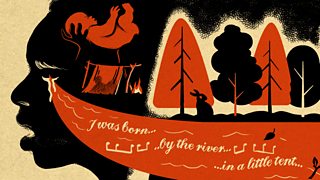Streets of London by Ralph McTell
4 Extra Debut. Ralph McTell and others discuss Streets of London, a folk song that transcended the genre to become a classic. From 2019.
Ralph McTell and others discuss a song that was written for a heroin addict, became an anthem against homelessness, and transcended the folk genre to become an enduring classic.
Ralph McTell says he’s thought constantly about the “blip in my graph” that is Streets of London. People say to him “50 years. One hit. You think you’d have given up by now”. But, Ralph says, that’s not why he writes songs. And, of course, he’s written many. Many that he considers far better than Streets of London. But this remains his best known, best loved, and most played track. It was first recorded 50 years ago, in 1969, for his album Spiral Staircase although it wasn’t released as a single until 1974.
Taking part in Soul Music, alongside Ralph, with their stories and memories connected to Streets of London, are:
Jerry Playle, a music producer. His first ever public performance as a teenage guitarist was of Streets of London. The guitar part went well, but when he opened his mouth to sing, he realised - to his horror - that he couldn't...
Gwen Ever, a DJ. He became homeless in the 1980s. It’s the unlikely punk version of Streets of London by the Anti Nowhere League that reminds him of this time.
Maria Bentley-Dingwall, the daughter of Iris Bentley. Iris was the sister of Derek Bentley who was hanged for a murder he did not commit. Iris spent her life campaigning for his conviction to be quashed. Ralph McTell grew up knowing this story, became a friend of the family, wrote a song about the case, and sang Streets of London at Iris Bentley’s funeral.
Producer: Karen Gregor
First broadcast on �鶹�� Radio 4 in 2019.
Last on
More episodes
Previous
Ralph McTell

Broadcasts
- Wed 17 Jul 2019 09:00�鶹�� Radio 4
- Wed 17 Jul 2019 21:30�鶹�� Radio 4
- Tue 29 Nov 2022 18:30�鶹�� Radio 4 Extra
- Wed 30 Nov 2022 00:30�鶹�� Radio 4 Extra
Why Sam Cooke's 'A Change Is Gonna Come' became a Civil Rights anthem
Podcast
-
![]()
Soul Music
Series about pieces of music with a powerful emotional impact



